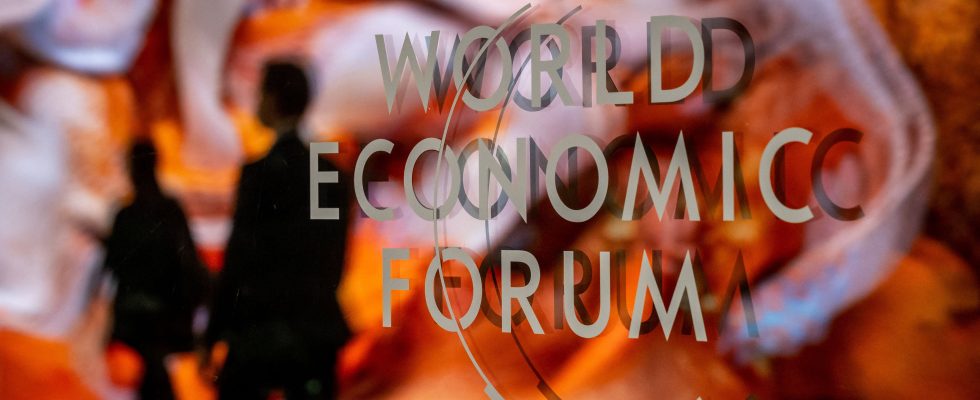More than 2,800 participants including at least 8,000 business leaders, central bankers and representatives of international organizations… The Swiss ski resort of Davos will be placed under very high surveillance from this Monday, on the occasion of the annual meeting of the World Economic Forum (WEF), held from January 15 to 19. Some 5,000 Swiss soldiers participate in the security system, which provides for permanent patrol flights of combat aircraft over the entire country.
Gaza, Ukraine, disinformation…
Gaza, Ukraine, trade and the Red Sea: geopolitics should dominate the annual meeting of the world’s political and economic elites. This meeting organized in the Swiss Alps takes place “in the most complicated geopolitical and economic context in several decades”, recognized this week the Norwegian Borge Brende, who chairs the organization. “The war in Gaza continues and there are fears of escalation,” he warned. “We will bring together key figures to see how to avoid further deterioration of the situation and look to the future.”
Wars, climate change, diplomatic tensions between the United States and China over Taiwan, attacks on merchant ships in the Red Sea… “Geopolitics right now is like watching a circus performer spinning plates on poles “, declared to AFP Karen Harris, partner and economist at the consulting firm Bain & Company.
The forum, under the theme “rebuilding trust”, aims, in addition to global conflicts, to place emphasis on artificial intelligence, described by the organizers as a “force for the economy and society”. Climate and cybersecurity are also on the agenda, as are the risks linked to disinformation, which can “undermine the legitimacy of newly elected governments”, according to the Global Risks Report published by the WEF ahead of the meeting, so that a major election year is looming.
Beyond the risks of misinformation (false information but disseminated unintentionally) and disinformation (false information disseminated voluntarily) “induced by AI” but also of “societal polarization” are added, this year, “concerns regarding a persistent cost of living crisis,” notes the Forum in a press release.
Macron, Zelensky, Blinken…
In total and in addition to hundreds of economic leaders, more than 60 heads of state or government are announced in Davos, including Chinese Premier Li Qiang, who will be the highest official to attend the meeting since President Xi Jinping in 2017, as Taiwan’s elections took place last weekend. The new ultraliberal Argentine head of state Javier Milei, compared to Donald Trump for his anti-system positions, will also be present.
Also expected at the World Economic Forum meeting: American Secretary of State Antony Blinken, accompanied by White House national security advisor Jake Sullivan, Israeli President Isaac Herzog, and even the Lebanese Prime Ministers Najib Mikati, Qatari Mohammed bin Abdelrahmane Al-Thani and Jordanian Bisher al-Khasawneh.
Ukrainian President Volodymyr Zelensky, who has only addressed leaders via video message in the past, will come in person this year. He also participated this Sunday, January 14, ahead of the WEF, in a meeting of national security advisors from several countries. Emmanuel Macron is due to go to Switzerland on Wednesday, where he will give a speech on “the role of France in Europe”, according to the organizers. UN Secretary General Antonio Guterres will also be present.
In the economic field, Microsoft CEO Satya Nadella as well as Sam Altman, boss of ChatGPT creator OpenAI, are announced. Beyond the official program, Davos also includes countless lunches, breakfasts, dinners and informal cocktails between political and economic decision-makers – with the occasional sled ride – which will punctuate the week at 1,500 meters above sea level. ‘altitude. Enough to stir up criticism every year. The young Swiss socialists, who demonstrated this Sunday, denounce once again this year a “closed meeting between the powerful and the rich” who “bear responsibility for crises and wars”.
